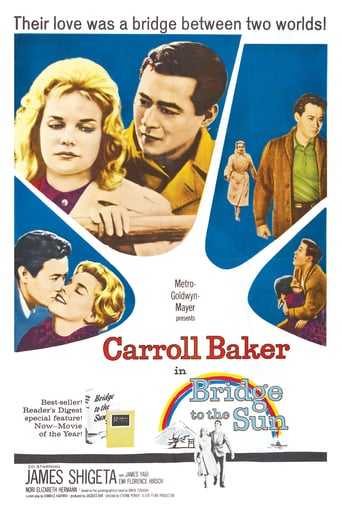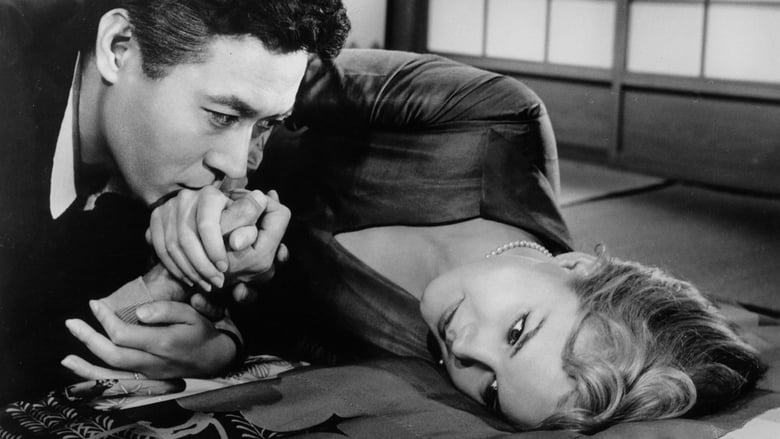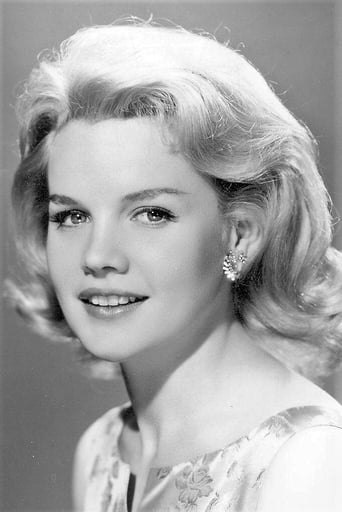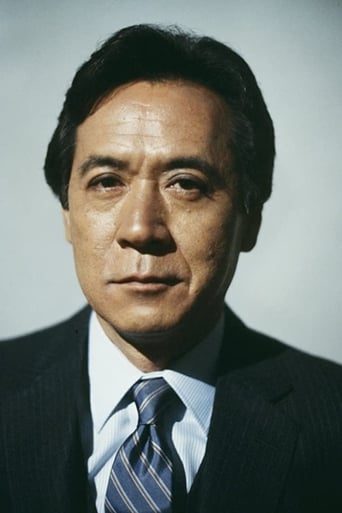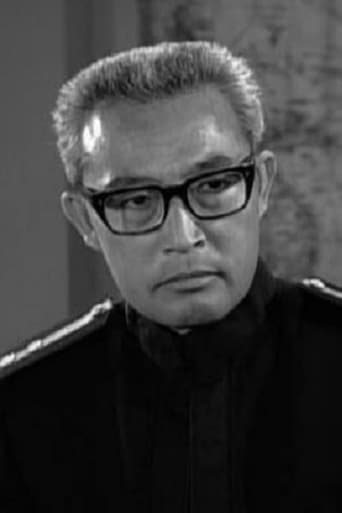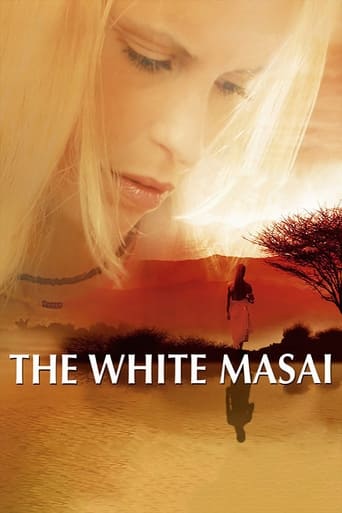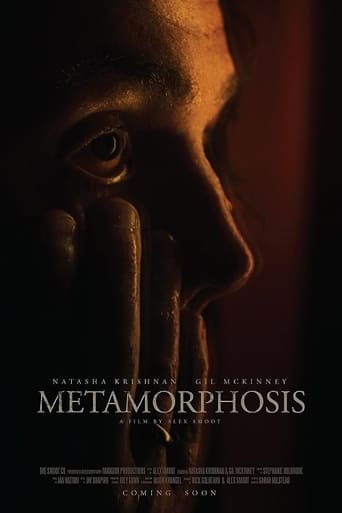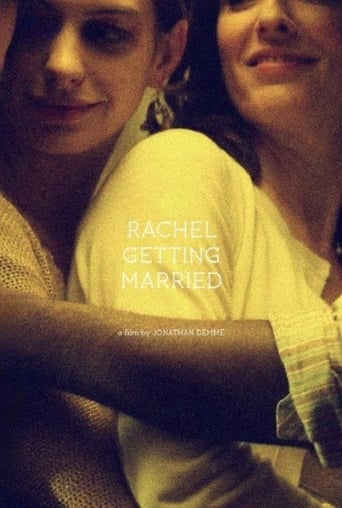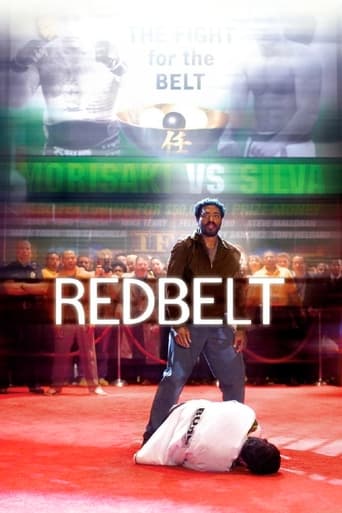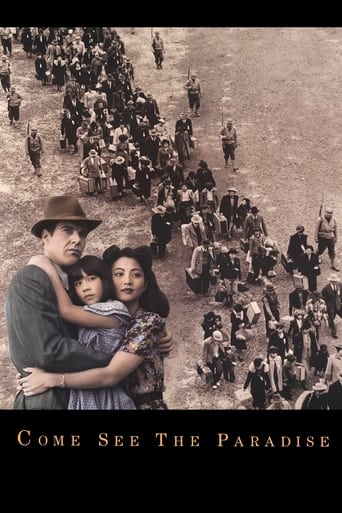Bridge to the Sun (1961)
Tells the true story of Gwen Terasaki, who falls in love with, then marries a Japanese diplomat. When war breaks out they find animosity and trouble from both sides.
Watch Trailer
Free Trial Channels
Cast


Similar titles

Reviews
Instead, you get a movie that's enjoyable enough, but leaves you feeling like it could have been much, much more.
It’s fine. It's literally the definition of a fine movie. You’ve seen it before, you know every beat and outcome before the characters even do. Only question is how much escapism you’re looking for.
All of these films share one commonality, that being a kind of emotional center that humanizes a cast of monsters.
There are moments that feel comical, some horrific, and some downright inspiring but the tonal shifts hardly matter as the end results come to a film that's perfect for this time.
Carroll Baker stars with James Shigeta in "Bridge to the Sun," based on the book by Gwen Terasaki. Though I believe dramatic license was taken regarding the love story between Gwen and her husband, certainly there are many fascinating aspects of her experiences that were included.Gwen meets diplomat Hidenari Terasaki when he was in Washington, and they fall in love and marry in 1931, though I'm not sure that was the year the film gave. Terasaki was First Secretary at the Japanese Embassy and also a pacifist who wanted to avoid war. Didn't happen. When the war starts, he has to return to Japan, and though he doesn't want his wife put into danger, Gwen insists on going too and brings their daughter, Mako. In her book, they are repatriated via neutral Angola.Once in Japan, they face many hardships and Terasaki much criticism because his wife is an American. There is no food, and there is a lot of bombing. They receive an offer to stay somewhere in the country, and they go; they face betrayal and danger there too.If you have read or seen Dragon Seed, you have an idea of what the Japanese did to the Chinese. Absolutely horrible. They are no better to the Americans, who were used for slave labor when captured - they are seen working on the railroad tracks as Gwen heads out to the country. One can feel sympathy for the people, but not their leaders, who lied to them about how the war was going.Both Baker and Shigeta are very good. Shigeta's role is more difficult as he has to show the ravages of his stress and exhaustion, and he does a beautiful job. It's funny what your impressions are when you are growing up. I was raised Catholic and I seem to recall Carroll Baker was considered some sort of sex kitten. She really evokes sympathy here and gives a lovely, sincere performance. This is a poignant film, a tearjerker, about two people from two different cultures caught in an impossible situation. It's all the more poignant because the emotions are true.
The memoirs of the real Gwen Terasaki serve as the basis for Bridge To The Sun. Carroll Baker and James Shigeta would have troubles enough in an interracial marriage in the Thirties in America, especially Baker who was from Johnson City, Tennessee. But as America and Japan edge closer and finally go to war, this star-crossed couple has to make some choices that not too many others have to face.But Baker and Shigeta are soul-mates and that fact is what keeps them together despite the upbringings of both. For Baker she's a southern girl born and bred. She has an easier time of overcoming that than Ensign Nellie Forbush in South Pacific, but it's there.As for Shigeta he's a Japanese diplomat who thinks the militarists are leading his country down the wrong path. But he's also traditional Japanese who believes that the woman is most inferior. There's a great scene of dinner at their house in Japan where the women eat separately at their own table. Some political remarks are made and she commits the ultimate social sin of speaking up. That leads to a nasty quarrel. It reminds of the scene in Giant where Elizabeth Taylor speaks up in a political discussion to Rock Hudson's chauvinistic chagrin. Texans and Japanese have chauvinism much in common.Of course when war is finally declared Shigeta is shipped home and Baker takes their daughter and accompanies him. Her insights into the Japanese home front are the best part of the film and her life story.It's not true that Gwen Teresaki took their daughter back to America much less Tennessee. She would know better than to take a mixed racial child anywhere in Dixie. 'Terry' Teresaki did die young and Gwen enjoyed a long widowhood in life not dying until 1990. But not within a year of their departure. The real Teresaki became part of the Japanese new government under the occupation and he died in 1951 just before the occupation ended.Bridge To The Sun should have been done in color, but I'm supposing that was to allow that black and white newsreel footage to be integrated into the story. Baker and Shigeta are fine in the leads and the story is an eternal that while love can be on a rocky road, it finds a way if it's real.
I saw this movie in theaters during its theatrical release. I was a teenager and usually went to action movies, but this movie really caught my attention. I was of the generation that grew up on Victory at Sea and war movies, but here was a story of a biracial couple in wartime Japan. I found it unusually moving. I particularly remember the line that James Shigeta's friend delivers when he admits that Carol Baker's husband has only a few weeks or maybe a few months to live. That is why he is sending his wife and child away, so they will not have to watch him during his final decline. "Death may be beautiful; dying is not." Words to live by.
Just before the 1941 Japanese attack on Pearl Harbor, an American girl from the South marries to a Japanese diplomat and moves with him to Tokyo.Mainly melodramatic treatment of a fact-based autobiographical novel, notable for its heartfelt leading performances, strikingly accurate detail of Japanese life, some convincingly documentary-style shots, and its brave change of perspective by showing the Japanese point of view against the American.

